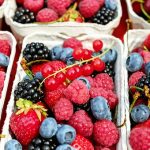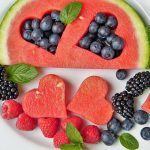Hearing loss affects millions globally, yet many overlook the connection between nutrition and ear health. While genetics and noise exposure are well-known factors, your diet also plays a critical role in protecting your hearing. Emerging research highlights how certain vitamins, minerals, and antioxidants support the delicate structures within the ear and may reduce the risk of age-related hearing loss.
This comprehensive guide explores the best nutrients for hearing health, foods to include in your diet, and practical lifestyle habits to support lifelong auditory wellness naturally.
Why Nutrition Matters for Hearing Health
The inner ear contains the cochlea, which houses hair cells essential for converting sound waves into electrical signals sent to your brain. These hair cells are sensitive to oxidative stress, inflammation, and poor circulation, all of which can contribute to hearing loss over time.
A diet rich in antioxidants, anti-inflammatory nutrients, and vascular-supporting compounds can help:
- Protect hair cells from oxidative damage.
- Improve blood flow to the inner ear.
- Reduce inflammation that may damage auditory pathways.
- Support the health of nerves involved in hearing.
Key Nutrients That Support Hearing Health
1️⃣ Antioxidants (Vitamins A, C, E)
Free radicals generated by noise exposure, aging, and environmental toxins can damage the inner ear. Antioxidants help neutralize these free radicals.
- Vitamin A (found in carrots, sweet potatoes, leafy greens) supports inner ear structures.
- Vitamin C (oranges, strawberries, bell peppers) has anti-inflammatory properties that may protect hearing.
- Vitamin E (almonds, sunflower seeds, spinach) helps protect hair cells from oxidative stress.
2️⃣ Magnesium
Magnesium supports blood vessel health, ensuring adequate blood flow to the inner ear. Research suggests magnesium may help protect against noise-induced hearing loss by stabilizing hair cell function during noise exposure.
Sources: Avocados, pumpkin seeds, leafy greens, black beans.
3️⃣ Zinc
Zinc plays a role in immune function and cellular repair, which may aid in protecting against ear infections and age-related hearing decline.
Sources: Oysters, beef, chickpeas, cashews, fortified cereals.
4️⃣ Omega-3 Fatty Acids
Omega-3s improve circulation and reduce inflammation, supporting cochlear health and nerve function. Studies have linked regular consumption of omega-3-rich fish with a lower risk of age-related hearing loss.
Sources: Salmon, mackerel, sardines, chia seeds, walnuts.
5️⃣ Folate and B Vitamins
Low folate levels have been associated with an increased risk of hearing loss, particularly in older adults. B vitamins help regulate homocysteine levels, which affect blood flow to the cochlea.
Sources: Lentils, spinach, asparagus, eggs, fortified whole grains.
Research Supporting the Nutrition-Hearing Connection
Several studies highlight the relationship between nutrition and hearing health:
- A study published in the American Journal of Clinical Nutrition found that higher intakes of beta-carotene, vitamin C, and magnesium were associated with a reduced risk of hearing loss.
- Research from the Journal of Nutrition noted that folate intake was inversely associated with age-related hearing loss, particularly in populations over 60.
- The Hearing Health Foundation notes that antioxidants combined with magnesium may protect against noise-induced hearing damage by reducing free radical formation in the inner ear.
While nutrition alone cannot prevent all types of hearing loss, a balanced diet rich in these nutrients can reduce the risk and progression of hearing decline.
Foods to Eat for Hearing Health
Incorporate these nutrient-dense, ear-supporting foods into your daily meals:
- Leafy greens: spinach, kale, and Swiss chard (vitamins A, C, folate, magnesium).
- Fatty fish: salmon, sardines, trout (omega-3s, vitamin D).
- Berries and citrus fruits: strawberries, blueberries, oranges (vitamin C, antioxidants).
- Nuts and seeds: almonds, pumpkin seeds, walnuts (vitamin E, magnesium, omega-3s).
- Beans and lentils: chickpeas, black beans, lentils (zinc, folate, magnesium).
- Whole grains: fortified cereals, oats, quinoa (B vitamins).
- Avocado: a source of magnesium and healthy fats.
Lifestyle Tips for Supporting Hearing Health Through Nutrition
- Aim for variety: Eating a colorful, whole-food-based diet ensures broad antioxidant coverage.
- Stay hydrated: Adequate hydration supports inner ear fluid balance, crucial for hearing function.
- Limit excessive salt: High sodium intake can affect blood pressure, reducing blood flow to the ear.
- Reduce sugar and processed foods: These increase inflammation and oxidative stress.
- Pair nutrition with hearing care: Continue protecting your ears from excessive noise while supporting them with the right nutrients.
Final Thoughts: Nourish Your Hearing Health
Supporting your hearing health through nutrition is a proactive step to preserve your ability to engage with the world around you. By adding antioxidant-rich fruits and vegetables, omega-3s, magnesium, zinc, and B vitamins to your diet, you provide your ears with the nutrients they need to function optimally.
While nutrition is not a cure for hearing loss, it is a valuable part of a holistic hearing wellness plan that includes noise protection, regular hearing checks, and lifestyle management.
Take action today by preparing a hearing-health-friendly meal plan, including leafy greens, berries, fatty fish, nuts, and legumes to support your ears naturally.
Purium Products that support Healthy Hearing:
READ MORE: Earwax Health Answers
Sources:
https://ajcn.nutrition.org/article/S0002-9165(23)04928-6/fulltext
https://ajcn.nutrition.org/article/S0002-9165(22)04316-7/fulltext
https://hearinghealthfoundation.org/blogs/7-day-challenge-for-better-hearing-health









